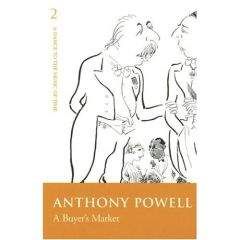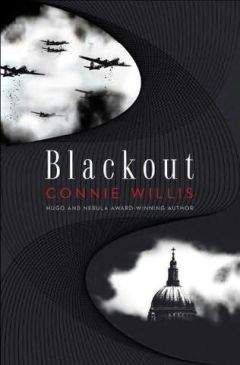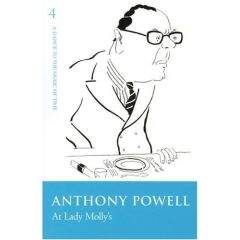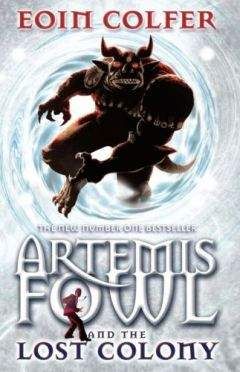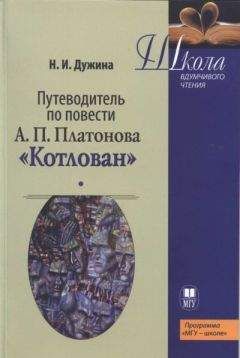W. Ainsworth - Rookwood
Washing this cliff, swept a clear stream, well known and well regarded, as it waxed in width, by the honest brethren of the angle, who seldom, however, tracked it to its rise amongst these hills. The stream found its way into the valley through a chasm far to the left, and rushed thundering down the mountain side in a boiling cascade. The valley was approached in this direction from Rookwood by an unfrequented carriage-road, which Luke had, from prudential reasons, avoided. All seemed consecrated to silence—to solitude—to the hush of nature; yet this quiet scene was the chosen retreat of lawless depredators, and had erstwhile been the theatre of feudal oppression.
We have said that no habitation was visible; that no dwelling tenanted by man could be seen; but following the spur of the furthest mountain hill, some traces of a stone wall might be discovered; and upon a natural platform of rock, stood a stern square tower, which had once been the donjon of the castle, the lords of which had called the four hills their own. A watch-tower then had crowned each eminence, every vestige of which had, however, long since disappeared. Sequestered in the vale, stood the Priory before alluded to (a Monastery of Grey Friars, of the Order of St. Francis), some of the venerable walls of which were still remaining; and if they had not reverted to the bat and owl, as is wont to be the fate of such sacred structures, their cloistered shrines were devoted to beings whose nature partook, in some measure, of the instincts of those creatures of the night—a people whose deeds were of darkness, and whose eyes shunned the light. Here the gipsies had pitched their tent; and though the place was often, in part, deserted by the vagrant horde, yet certain of the tribe, who had grown into years (over whom Barbara Lovel held queenly sway), made it their haunt, and were suffered, by the authorities of the neighbourhood, to remain unmolested—a lenient piece of policy, which, in our infinite regard for the weal of the tawny tribe, we recommend to the adoption of all other justices and knights of the shire.
Bidding his grandsire have regard to his seat, Luke leaped a high bank; and, followed by Turpin, began to descend the hill. Peter, however, took care to provide for himself. The descent was so perilous, and the footing so insecure, that he chose rather to trust to such conveyance as nature had furnished him with, than to hazard his neck by any false step of the horse. He contrived, therefore, to slide off from behind, shaping his own course in a more secure direction.
He who has wandered amidst the Alps must have often had occasion to witness the wonderful surefootedness of that mountain pilot, the mule. He must have remarked how, with tenacious hoof, he will claw the rock, and drag himself from one impending fragment to another, with perfect security to his rider; how he will breast the roaring currents of air, and stand unshrinking at the verge of almost unfathomable ravines. But it is not so with the horse: fleet on the plain, careful over rugged ground, he is timid and uncertain on the hill-side, and the risk incurred by Luke and Turpin, in their descent of the almost perpendicular sides of the cliff, was tremendous. Peter watched them in their descent with some admiration, and with much contempt.
"He will break his neck, of a surety," said he; "but what matters it? As well now as hereafter."
So saying, he approached the verge of the precipice, where he could see them more distinctly.
The passage along which Luke rode had never before been traversed by horse's hoof. Cut in the rock, it presented a steep zig-zag path amongst the cliffs, without any defence for the foot traveller, except such as was afforded by a casual clinging shrub, and no protection whatever existed for a horseman; the possibility of anyone attempting the passage not having, in all probability, entered into the calculation of those who framed it. Added to this, the steps were of such unequal heights, and withal so narrow, that the danger was proportionately increased.
"Ten thousand devils!" cried Turpin, staring downwards; "is this the best road you have got?"
"You will find one more easy," replied Luke, "if you ride for a quarter of a mile down the wood, and then return by the brook side. You will meet me at the priory."
"No," answered the highwayman, boldly; "if you go, I go too. It shall never be said that Dick Turpin was afraid to follow where another would lead. Proceed."
Luke gave his horse the bridle, and the animal slowly and steadily commenced the descent, fixing his fore-legs upon the steps, and drawing his hinder limbs carefully after him. Here it was that the lightness and steadiness of Turpin's mare was completely shown. No Alpine mule could have borne its rider with more apparent ease and safety. Turpin encouraged her by hand and word; but she needed it not. The sexton saw them, and, tracking their giddy descent, he became more interested than he anticipated. His attention was suddenly drawn towards Luke.
"He is gone," cried Peter. "He falls—he sinks—my plans are all defeated—the last link is snapped. No," added he, recovering his wonted composure, "his end is not so fated."
Rook had missed his footing. He rolled stumbling down the precipice a few yards. Luke's fate seemed inevitable. His feet were entangled in the stirrup, he could not free himself. A birch-tree, growing in a chink of the precipice, arrested his further fall. But for this timely aid all had been over. Here Luke was enabled to extricate himself from the stirrup and to regain his feet; seizing the bridle, he dragged his faulty steed back again to the road.
"You have had a narrow escape, by Jove," said Turpin, who had been thunderstruck by the whole proceeding. "Those big cattle are always clumsy; devilish lucky it's no worse."
It was now comparatively smooth travelling; but they had not as yet reached the valley, and it seemed to be Luke's object to take a circuitous path. This was so evident, that Turpin could not help commenting upon it.
Luke evaded the question. "The crag is steep there," said he; "besides, to tell you the truth, I want to surprise them."
"Ho, ho!" laughed Dick. "Surprise them, eh? What a pity the birch-tree was in the way; you would have done it properly then. Egad, here's another surprise."
Dick's last exclamation was caused by his having suddenly come upon a wide gully in the rock, through which dashed a headlong torrent, crossed by a single plank.
"You must be mad to have taken this road," cried Turpin, gazing down into the roaring depths in which the waterfall raged, and measuring the distance of the pass with his eye. "So, so, Bess!—Ay, look at it, wench. Curse me, Luke, if I think your horse will do it, and, therefore, turn him loose."
But Dick might as well have bidden the cataract to flow backwards. Luke struck his heels into his horse's sides. The steed galloped to the brink, snorted, and refused the leap.
"I told you so—he can't do it," said Turpin. "Well, if you are obstinate, a wilful man must have his way. Stand aside, while I try it for you." Patting Bess, he put her to a gallop. She cleared the gulf bravely, landing her rider safely upon the opposite rock.
"Now then," cried Turpin, from the other side of the chasm.
Luke again urged his steed. Encouraged by what he had seen, this time the horse sprang across without hesitation. The next instant they were in the valley.
For some time they rode along the banks of the stream in silence. A sound at length caught the quick ears of the highwayman.
"Hist!" cried he; "some one sings. Do you hear it?"
"I do," replied Luke, the blood rushing to his cheeks.
"And could give a guess at the singer, no doubt," said Turpin, with a knowing look. "Was it to hear yon woodlark that you nearly broke your own neck, and put mine in jeopardy?"
"Prithee be silent," whispered Luke.
"I am dumb," replied Turpin; "I like a sweet voice as well as another."
Clear as the note of a bird, yet melancholy as the distant dole of the vesper-bell, arose the sound of that sweet voice from the wood. A fragment of a Spanish gipsy song it warbled; Luke knew it well.
The tender trembling of a guitar was heard in accompaniment of the ravishing melodist.
The song ceased.
"Where is the bird?" asked Turpin.
"Move on in silence, and you shall see," said Luke; and, keeping upon the turf, so that his horse's tread became inaudible, he presently arrived at a spot where, through the boughs, the object of his investigation could plainly be distinguished, though he himself was concealed from view.
Upon a platform of rock, rising to the height of the trees, nearly perpendicularly from the river's bed, appeared the figure of the gipsy maid. Her footstep rested on the extreme edge of the abrupt cliff, at whose base the water boiled in a deep whirlpool, and the bounding chamois could not have been more lightly poised. One small hand rested upon her guitar, the other pressed her brow. Braided hair, of the jettiest die and sleekest texture, was twined around her brow, in endless twisted folds.
And so exuberant was this rarest feminine ornament, that, after encompassing her brow, it was passed behind, and hung down in long thick plaits almost to her feet. Sparkling, as the sunbeams that played upon her dark yet radiant features, were the large, black, oriental eyes of the maiden, and shaded with lashes long and silken. Hers was a Moorish countenance, in which the magnificence of the eyes eclipses the face, be it ever so beautiful (an effect to be observed in many of the paintings of Murillo), and the lovely contour is scarcely noticed in the gaze which those long, languid, luminous orbs attract. Sybil's features were exquisite, yet you looked only at her eyes—they were the lodestars of her countenance. Her costume was singular, and partook, like herself, of other climes. Like the Andalusian dame, her choice of colour inclined towards black, as the material of most of her dress was of that sombre hue. A bodice of embroidered velvet restrained her delicate bosom's swell; a rich girdle, from which depended a silver chain, sustaining a short poniard, bound her waist; around her slender throat was twined a costly kerchief; and the rest of her dress was calculated to display her slight, yet faultless, figure to the fullest advantage.
Unconscious that she was the object of regard, she raised her guitar, and essayed to touch the chords. She struck a few notes, and resumed her romance.
Her song died away. Her hand was needed to brush off the tears that were gathering in her large dark eyes. At once her attitude was changed. The hare could not have started more suddenly from her form. She heard accents well known concluding the melody.
It was her lover's voice. She caught the sound at once, and, starting, as the roe would arouse herself at the hunter's approach, bounded down the crag, and ere he had finished the refrain, was by his side.
Flinging the bridle to Turpin, Luke sprang to her, and caught her in his arms. Disengaging herself from his ardent embrace, Sybil drew back, abashed at the sight of the highwayman.
"Heed him not," said Luke; "it is a friend."
"He is welcome here then," replied Sybil. "But where have you tarried so long, dear Luke?" continued she, as they walked to a little distance from the highwayman. "What hath detained you? The hours have passed wearily since you departed. You bring good news?"
"Good news, my girl; so good, that I falter even in the telling of it. You shall know all anon. And see, our friend yonder grows impatient. Are there any stirring? We must bestow a meal upon him, and that forthwith: he is one of those who brook not much delay."
"I came not to spoil a love meeting," said Turpin, who had good-humouredly witnessed the scene; "but, in sober seriousness, if there is a stray capon to be met with in the land of Egypt, I shall be glad to make his acquaintance. Methinks I scent a stew afar off."
"Follow me," said Sybil; "your wants shall be supplied."
"Stay," said Luke; "there is one other of our party, whose coming we must abide."
"He is here," said Sybil, observing the sexton at a distance. "Who is that old man?"
"My grandsire, Peter Bradley."
"Is that Peter Bradley?" asked Sybil.
"Ay, you may well ask whether that old dried-up otomy, who ought to grin in a glass case for folks to stare at, be kith and kin of such a bang-up cove as your fancy man, Luke," said Turpin, laughing—"but i'faith he is."
"Though he is your grandsire, Luke," said Sybil, "I like him not. His glance resembles that of the Evil Eye."
And, in fact, the look which Peter fixed upon her was such as the rattlesnake casts upon its victim, and Sybil felt like a poor fluttering bird under the fascination of that venomous reptile. She could not remove her eyes from his, though she trembled as she gazed. We have said that Peter's orbs were like those of the toad. Age had not dimmed their brilliancy. In his harsh features you could only read bitter scorn or withering hate; but in his eyes resided a magnetic influence of attraction or repulsion. Sybil underwent the former feeling in a disagreeable degree. She was drawn to him as by the motion of a whirlpool, and involuntarily clung to her lover.
"It is the Evil Eye, dear Luke."
"Tut, tut, dear Sybil; I tell you it is my grandsire."
"The girl says rightly, however," rejoined Turpin; "Peter has a confounded ugly look about the ogles, and stares enough to put a modest wench out of countenance. Come, come, my old earth-worm, crawl along, we have waited for you long enough. Is this the first time you have seen a pretty lass, eh?"
"It is the first time I have seen one so beautiful," said Peter; "and I crave her pardon if my freedom has offended her. I wonder not at your enchantment, grandson Luke, now I behold the object of it. But there is one piece of counsel I would give to this fair maid. The next time she trusts you from her sight, I would advise her to await you at the hill-top, otherwise the chances are shrewdly against your reaching the ground with neck unbroken."
There was something, notwithstanding the satirical manner in which Peter delivered this speech, calculated to make a more favourable impression upon Sybil than his previous conduct had inspired her with; and, having ascertained from Luke to what his speech referred, she extended her hand to him, yet not without a shudder, as it was enclosed in his skinny grasp. It was like the fingers of Venus in the grasp of a skeleton.
"This is a little hand," said Peter, "and I have some skill myself in palmistry. Shall I peruse its lines?"
"Not now, in the devil's name!" said Turpin, stamping impatiently. "We shall have Old Ruffin himself amongst us presently, if Peter Bradley grows gallant."
Leading their horses, the party took their way through the trees. A few minutes' walking brought them in sight of the gipsy encampment, the spot selected for which might be termed the Eden of the valley. It was a small green plain, smooth as a well-shorn lawn, kept ever verdant (save in such places as the frequent fires had scorched its surface) by the flowing stream that rushed past it, and surrounded by an amphitheatre of wooded hills. Here might be seen the canvas tent with its patches of varied colouring; the rude-fashioned hut of primitive construction; the kettle slung
Between two poles, upon a stick transverse
the tethered beasts of burden, the horses, asses, dogs, carts, caravans, wains, blocks, and other movables and immovables belonging to the wandering tribe. Glimmering through the trees, at the extremity of the plain, appeared the ivy-mantled walls of Davenham Priory. Though much had gone to decay, enough remained to recall the pristine state of this once majestic pile, and the long, though broken line of Saxon arches, that still marked the cloister wall; the piers that yet supported the dormitory; the enormous horse-shoe arch that spanned the court; and, above all, the great marigold, or circular window, which terminated the chapel, and which, though now despoiled of its painted honours, retained, like the skeleton leaf, its fibrous intricacies entire—all eloquently spoke of the glories of the past, while they awakened reverence and admiration for the still-enduring beauty of the present.
